|
Holy Week is one of my favorite weeks of the year; each of the days builds with anticipation and I get excited just by the thought of Easter Sunday. Lent is almost through and it’s almost time to be joyful in the Risen Lord. When I was little, I felt this anticipation and excitement too. I would spend Holy Week letting people know that Easter was only a couple short days away—it felt like spring would officially be here as soon as we woke up on Easter Sunday! “The very best holiday of the year” was coming, and I had to get ready for it! Did I fully understand it was Christ that I was waiting for or did I just want to wear my new white shoes for church? Looking back, although it could have been the new Easter shoes, I think my 10 year-old-self would have agreed that I really was waiting for Holy Week as the final stretch to the finish line on a journey that began on Ash Wednesday.
In today’s Gospel reading, we read about moments of betrayal and loyalty. Judas leaves the Last Supper to betray Jesus while Peter in his humanity says that he will never deny him. I find it to be one of the most powerful Gospels of Holy Week. Here’s why: Like Peter, we are called to be disciples whose repentance leads to an experience of God’s forgiveness. Jesus knows that his friends will betray him and that he has limited time left on Earth. On one hand, Judas tries not to be obvious about his deception as he leaves the table, and on the other hand, Peter publicly tells Christ that he will stand by him and never fail him. Ultimately, both men betray Jesus, but it’s Peter who seeks forgiveness and allows himself a second chance. Judas, on the other hand, is overcome with guilt and despairs that his sin is beyond the reach of God’s mercy-- eventually taking his own life. We are like Peter in so many ways! We say we love Christ and that we could never deny him, but at the first sign of pressure we sin and turn our backs on him. How often have we chosen to do something that pulls our hearts from Jesus? It is during Lent—especially during Holy Week—that we recall the pain we’ve caused Christ. This week and each day, Jesus gives us another chance to say to him, “Forgive me; I have sinned.” When Christ meets his disciples after his Resurrection, he asks Peter, “Do you love me?” Let us respond with Peter this Easter, “Yes Lord, you know that I love you!” As Easter approaches, we remember how much we are loved by Christ in his Passion, death on the Cross, and soon to be Resurrection. In these next few days, I challenge you not to say, “Lord I could never deny you!” but instead, “Forgive me Lord, for I have sinned.” Last year on Good Friday, Pope Francis said, “Lord Jesus, always grant us the grace of holy repentance...the spark of hope is lit in the darkness of our despair, because we know that your only measure for loving us is to love us without measure.” This Holy Week, in this time for “holy repentance,” let us make sure to spend these last days in Lent with our hearts preparing for Easter. May we use these remaining days in the desert as a time for forgiveness and allow our hearts to be loved by Christ. May all of our hearts gleam with anticipation for Holy Week and better knowledge of the Risen Lord!
0 Comments
“Remember you are dust and to dust you shall return.” We are now over a week into our Lenten journey; the reality has set in. We are questioning our decisions to give up sweets or the snooze button, and we are tired. Perhaps we have even failed a few times. The forty days seem to drag, and the somberness of the liturgical season has made itself known. Yet during the Ash Wednesday service at my parish, our priest was talking about the joy of the season and how our failures are meant to bring us closer to Our Lord. In a word, he talked about the hope of Lent. As someone who would rather stay in the joy and light of the Christmas season, I was really challenged by Father’s perspective, especially now, after my many failed attempts to give up the snooze button. We often focus so much on the “giving up” aspect of Lent that the words joy and hope do not seem to go hand in hand with this season. This is especially true when I think of the phrase that kickstarts our Lenten journey: “Remember you are dust and to dust you shall return.” On a superficial level, this sign on our forehead doesn’t look so good. Where are the hope and joy in having ashes smeared on your forehead? Throughout his homily, Father also encouraged us to change our perspective on the difficult acts of penance we are attempting and instead to live in the reality that this season could be a time of true conversion of heart. Our Lord desires us to be holy! The acts of penance we choose could be the very means He uses to break us of habitual sin and to bring a deeper level of charity into our hearts. Conversion of heart and holiness? I could get behind that; I can see the joy there! The priest did not say “if you fail your resolutions” but “when you fail.” This is a reminder of our weakness and utter dependence on Jesus, who will be making His way to Calvary soon, in Scripture, to save our souls. This dependence on Him will assist in our conversion of heart, considering “we can do nothing without him” (John 15:5). So: it’s alright to fail, but run back to Him. Beg Him for more grace! Now let’s read this sentence from the Ash Wednesday service one more time: “Remember you are dust and to dust you shall return.” Where is the hope there? Father explained that this is the most hopeful reality yet. Ultimately this reminder of our sinfulness and our death paradoxically represents the life we have in Christ, the Resurrection of Jesus, and the hope we have of entering into the Eternal Reward. Even though the phrase seems bleak, it can propel our hope throughout these 40 days. We have something to strive for, to live for, and to love for. Though I have failed at my Lenten resolutions more times than I have not, I pray with the hope that my humanity might be resurrected, that Our Lord may convert my sinful ways, and that I may remember that this liturgical season is less about what I do and more about what the Lord is doing in my heart to get me home. What are ways you need to be renewed in hope and joy? How can you accept the failures that come with penance and run to Jesus this Lenten season? “Remember you are dust and to dust you shall return.” For more resources to accompany you on your Lenten journey, please click here. Just down the street from where I study and serve in my home Archdiocese of Baltimore is our nation’s first Catholic cathedral, the Basilica of the Assumption, a visible testimony to the faith of the first Catholics in the newly formed United States of America. Yet every time I visit that holy place, I’m reminded by the physical space that for many years worship was segregated and black Catholics were required to sit in the balcony. Our family of faith in Baltimore included heroic individuals and communities like that of Mother Mary Lange (1794-1882), founder of the first African-American religious order, the Oblate Sisters of Providence, and the ministry of the Josephites. Their creative witness and ongoing presence in our communities today serve as a constant reminder that their mission lives on and has work yet to do. Since 1990, the Church in the United States, through the work of the National Black Catholic Clergy Caucus (NBCCC), has designated November as Black Catholic History Month. In a special way, the testimony of black Catholics reminds us all that as disciples of Christ, we live by memory. Celebrating this month reminds the Church just what it is that we are responsible for remembering. The act of remembering is a moral and spiritual task, part of the Church’s call to combat the sin of racism and seek new forms of reconciliation with sins of the past. Additionally, I’d like to suggest that memory lies at the heart of the Church’s celebration of word and sacrament, and briefly reflect here on why remembering our Church’s black history is so important for faithfully celebrating God’s word and sacrament each and every day. Those who attend or have attended a parish with a strong black Catholic presence will often recognize the power of the proclamation and preaching of God’s word. In particular, this tradition of preaching reminds Catholics that our Church preaches and teaches a truly liberatory word. Jesus Christ came to deliver God’s people from all forms of bondage and oppression, restoring us to freedom. Our biblical faith makes clear that participation in the Exodus event is intrinsically connected with our participation in the Passover. As Catholics, this means we are fed by God’s word and sacrament, particularly the Eucharist. At the Institution of the Eucharist at his Last Supper, Jesus instructed his Apostles to “Do this in memory of me” (Lk 22:19). The sacrifice of the Mass is an act of remembrance, called anamnesis, that re-presents Christ, making Jesus truly present here and now in the species of bread and wine. (I invite you to read Father Raniero Cantalamessa’s reflection.) That act of remembering is the basis for our act of thanksgiving (literally, “eucharist”). But it is impossible for us to give thanks for what we cannot remember. Does Christ’s presence at the altar then lead us onward to become more aware of Christ’s presence in our brothers and sisters who remain subject to forms of injustice and oppression elsewhere? To this end, our bishops offer resources on how to respond to sins of racism, an important way to publicly live out the interior transformation we receive in the Eucharist. While we live by memory, we do not simply live in the past; we are called to faithfully live out of our past. We live by memory as a sign of our hope that since God gave us a past, he promises us a future. Black Catholic History Month serves as a reminder that we have a history worth remembering and celebrating, so that we may go on living in the freedom to which Christ daily calls us. For more resources, we invite you to visit our Cultural Diversity Resources page and scroll down to the section on African American/Black Catholics. Click here to read Open Wide Our Hearts: The Enduring Call to Love, a pastoral letter from the USCCB against racism Questions for Reflection: How does remembering the past help us to live more faithfully and hopefully in the future? How have you seen our Church benefit from the diversity of its members? *This post was originally published on the Ad Infinitum Blog on November 2, 2017 For more information about Black Catholics in the US, check out the resources created by the National Black Catholic Congress in collaboration with the Catholic Apostolate Center: In AD 590, when a man named Gregory—the abbot of St. Andrew’s Monastery in Rome—was called upon to serve as Bishop of Rome, he responded with an open letter to the Church: "Pastoralis curae me pondera fugere" — “I have thought to flee from the burdens of pastoral care.” In essence, Gregory pleaded to be spared the heavy and awesome responsibility of the office of bishop. His letter formed the opening lines of his work Pastoral Care (Regula Pastoralis), one of our church’s greatest works of pastoral theology by one of our church’s greatest shepherds. Interestingly, we celebrate Pope St. Gregory the Great’s feast on September 3, the day he was consecrated pope — not the anniversary of the saint’s death, as per usual — perhaps as a testament to the light of personal holiness and institutional reform that he exhibited during the dark days, literally the historical “Dark Ages,” of the church when he was elected. Though primarily addressing his soon-to-be brother bishops in Pastoral Care, St. Gregory’s words resonate with all those who exercise leadership and responsibility in ministry, especially in light of the painful days in which our church now finds herself. In times of turmoil, St. Gregory believed that God calls all the baptized faithful — laity and clergy, women and men, young and old — to the task of renewal in the apostolate. St. Gregory did not mince words when he called out leaders “who aspire to glory and esteem by an outward show of authority within the holy Church,” and as a result, “when those who go before lose the light of knowledge, certainly those who follow are bowed down in carrying the burden of their sins” (Pastoral Care, I.1). He observed, “For no one does more harm in the Church than he, who having the title or rank of holiness, acts evilly” (Pastoral Care, I.3). St. Gregory’s great handbook on pastoral care challenges the core values and virtues that ought to shape our Christian life and community. In aspiring to roles of leadership, Gregory makes the striking remark that “whosoever was set over the people was the first to be led to the tortures of martyrdom” (Pastoral Care, I.8). In other words, Gospel ministry in the footsteps of Jesus, especially for those serving in leadership, is a laying down of one’s life — one’s time, talent, treasures — so that the power of the crucified and risen Christ may live in us. The result is not necessarily “success,” but joy and salvation. In imitation of Jesus, true pastoral care conquers the love of power with the power of love. In calling others to holiness, what made Gregory truly “great” was that in spite of his strengths, he never lost sight of his own weaknesses, sins, failures, and need for constant conversion. He ends his work by stating: “I, miserable painter that I am, have painted the portrait of an ideal man; and here I have been directing others to the shore of perfection, I, who am still tossed about on the waves of sin. But in the shipwreck of this life, sustain me, I beseech you, with the plank of your prayers, so that, as my weight is sinking me down, you may uplift me with your meritorious hand.” (Pastoral Care, IV) In short, we Christian brothers and sisters need each other more than ever. We need each other to offer joy, consolation, encouragement, and a helping hand to one another. That is what makes ministry not only possible, but even worth doing. We hold out hope that our God never ceases to call forth church leaders and Christ followers like Gregory to lead us through the Dark Ages, in whatever age they seem to be dawning. The Easter season is an incredible time of celebration and joy for the Church. Jesus Christ, after being tortured and publicly executed, has resurrected from the dead and restored us to the heavenly communion from which sin had kept us. Death, solitude, and fear no longer have the last word; eternal life for the faithful is no longer impossible thanks to God’s great sacrificial love. And yet, death is still a certainty for each of us. At times, it can be difficult to cope with the death of a loved one, especially if it is unexpected or tragically sudden. How can one reconcile death with the elation with which we celebrate death’s demise at Easter?
I like to recall the words of Reverend Paul Scalia at the funeral Mass of his father, Supreme Court Justice Antonin Scalia: “It is because of [Jesus Christ], because of his life, death and resurrection that we do not mourn as those who have no hope, but in confidence we commend [the deceased] to the mercy of God.” While Christian funerals themselves can be somber occasions, their focus is not on the end of the departed’s life, but rather on the hope of his or her reception of God’s mercy and sharing in the eternal victory of Jesus. This is not to say that grief and other emotions have no place through the final committal—they are very real and should be allowed to fully run their course—but as Christians we unite any sufferings in this life to Christ’s and so recognize their redemptive values and purposes. The annual celebration of Easter, then, recalls the impossible achievement of Christ’s resurrection, “the true hope of the world, the hope that does not disappoint.” As Saint John Paul II quoted St. Augustine, “We are an Easter People and ‘Alleluia’ is our song!” If you look at the Order of Christian Funerals, you can see this hope so wonderfully imbued in the liturgical norms. Always calling to mind the merits and glories of Christ’s Resurrection, the celebrant leads the congregation in recalling the baptismal promises of the deceased: dying to self and the rejection and repentances of sin results in being raised like Christ in the merciful goodness of God on the last day. And it doesn’t end there. As Saint Ambrose preached, “We have loved them during life; let us not abandon them in death, until we have conducted them by our prayers into the house of the Lord.” We should continue to pray for the dead. The Mass, as Reverend Scalia reflected, is the best way of doing this: Jesus Christ is the same, yesterday, today and forever… this is also the structure of the Mass—the greatest prayer we can offer for [the deceased], because it’s not our prayer but the Lord’s. The Mass looks to Jesus yesterday. It reaches into the past— to the Last Supper, to the crucifixion, to the resurrection— and it makes those mysteries and their power present here, on this altar. Jesus himself becomes present here today, under the form of bread and wine, so that we can unite all of our prayers of thanksgiving, sorrow and petition with Christ himself, as an offering to the Father. And all of this, with a view to eternity— stretching towards heaven— where we hope to enjoy that perfect union with God himself and to see [the deceased] again, and with [them] to rejoice in the communion of saints. The Church, has always upheld the merits of praying for the dead, especially for the souls undergoing final purification of venial sins in purgatory. As the Catechism notes, the sacrifice of the Mass transcends time and space to unite the faithful on earth, in Heaven, and those in Purgatory to Christ in Holy Communion (cf. CCC 1391-1396). In praying for the dead, much good can thus be done for them who otherwise might not be remembered beyond the grave! As we continue to praise Christ’s Resurrection at Easter, remember to intercede for those who await being raised up themselves. Just as we implore the saints to pray for us, so too do the souls in purgatory desire to be prayed for as they undergo final preparation for Heaven. Just as the Universal Church links the faithful of God across earth, so too does this Heavenly Communion unite believers in Christ’s love as celebrated at Mass and recalled in His Passion and crucifixion. May the glories of Easter move us to rejoice in God’s eternal victory over the grave and prepare to reunite us to those who have gone before us in Faith. Eternal rest grant unto them, O Lord. And let the perpetual light shine upon them. And may the souls of all the faithful departed, through the mercy of God, rest in peace. Amen. Question for Reflection: Did you know that praying for the dead is considered a spiritual work of mercy? The Latin word for mercy is misericordia, which is formed from two other Latin words: “miseriae,” which means misery or suffering, and “cordia,” which means heart. One could thus say that the mercy of God draws misery out of a person’s heart. It is of the nature of mercy to therefore heal wounds. The mercy we are speaking about here is broader than the reception of forgiveness from God and granting forgiveness to others. It includes all of the spiritual and corporal works of mercy, which are also aspects of God’s very own love for us. As Pope St. John Paul II once said, “Mercy is love’s second name.” However, in this brief post, I’m going to focus on that aspect of mercy we are the most familiar with – forgiving and receiving forgiveness. I am an adult child of divorce, so I have seen first-hand what the lack of forgiveness can look like. I believe that divorce typically involves one or both parents withholding mercy. There are, of course, other complicating factors for the divorce, but I believe there is usually a failure of mercy somewhere in the relationship. I knew I did not want to repeat the mistakes of my parents, so I took a long look at mercy and examined how it might be a key to love and to healing wounds. In terms of love, I have always been struck by the beautiful reality that Matthew 19, which is Christ’s strongest teaching about the indissolubility of marital love, is preceded by one of Christ’s strongest teachings on mercy in Matthew 18, where he exhorts his followers to forgive 77 x 7 times. This number is a symbolic way for saying, “infinitely and unconditionally.” The proximity of these two teachings in the Bible suggests that the form of indissolubility is merciful love. Merciful love is not optional in relationships, but the foundation for its long-term success. Offering forgiveness gives a new beginning to the one who offends and helps relationships build from injuries that inevitably arise in any relationship, even great ones. As Ruth Graham, the wife of the recently deceased protestant minister Billy Graham said, “Marriage is a union of two good forgivers.” To offer forgiveness in the radical sense Christ is proposing here, we need to experience Divine Mercy ourselves. We can do this by going frequently to the Sacrament of Reconciliation and understanding what is occurring. In the Sacrament of Reconciliation, we receive unmerited forgiveness from Christ. He does not owe us forgiveness and yet he forgives. He also always forgives us despite the number of times we repeatedly fail at the same sin. “Christ never tires of mercy,” Pope Francis reminds us. And Christ forgave us while we were sinners before we were even repentant and able to receive that forgiveness. His cry on the Cross, “Father forgive them, for they know not what they do,” is echoed down through the centuries. When we experience this unmerited forgiveness in the Sacrament of Reconciliation, we are healed because we recognize that Christ loves us “just because.” He does not love us because we do not have sin, failures, or weaknesses. He loves us despite these things and the ugliness of our actions. He loves us “just because” we are always His beloved. Of course, Christ wants us to be repentant, to promise to be holy and sin no more, in order to be reconciled with Him and others. Yet at the same time, we must never forget that this divine forgiving love always remains unmerited because Christ loves unconditionally. With the reception of this Divine Mercy, we can then live mercifully in our own relationships in the same way and not be afraid when we or our spouse, friends, or family make mistakes, have conflict, or sin. These things happen; we are not perfect. In such moments, it is always possible to forgive, to receive forgiveness, and to love if we draw continually upon God’s grace and forgiveness. By doing so, we’ll experience healing and a deeper unity again and again through mercy. Questions for Reflection: When was the last time you received the Sacrament of Reconciliation? How have you experienced God’s mercy? For some, Palm Sunday was a political event surrounding a political person that led to the greatest, most unexpected revolution the world has ever seen happen. Historically, the week leading up to Jesus’ Passion would have been the time of preparation for Passover, when many Jews from all the surrounding villages were in Jerusalem together. The gospels (Mt 21: 1-11) describe Jesus’ triumphant entrance into Jerusalem to the swaying of palm fronds and shouts of “Hosanna!” These were unmistakable prophetic signs of the Messiah-king, the one many Jews expected would finally overthrow their Roman overlords and re-establish Israel’s reign on earth, perhaps even violently—as a group called the “Zealots” expected. Yet there is a further symbol to this story: Jesus riding on a colt or ass, the sign of a humble and meek king. Jesus did not become the king they expected, but instead, the one God wanted. As Pope Francis said in his 2016 homily on the Feast of Christ the King, “The Gospel in fact presents the kingship of Jesus as the culmination of his saving work, and it does so in a surprising way. ‘The Christ of God, the Chosen One, the King’ (Lk 23:35,37) appears without power or glory: he is on the cross, where he seems more to be conquered than conqueror.” Like Jesus’ followers then, today we are susceptible to temptations of limited expectations. It is possible to see Jesus merely as a political and ethical teacher who died a martyr’s death and nothing else. On the other hand, we might project Jesus’ kingdom to a purely “other-worldly” realm. Since Jesus apparently wasn’t setting up his kingdom on earth (so we assume), we are tempted to sanitize Jesus of any “worldly” political or practical implications, and simply assume political engagement has limited place, or even runs counter to our task of evangelization. As Pope Pius XI wrote in his establishment of the Feast of Christ the King, “It would be a grave error…to say that Christ has no authority whatever in civil affairs, since, by virtue of the absolute empire over all creatures committed to him by the Father, all things are in his power…although he himself disdained to possess or to care for earthly goods, he did not, nor does he today, interfere with those who possess them.” Both interpretations—that Jesus was strictly political or that his work was merely “not of this world”—fail to take seriously not only Jesus’ public ministry and preaching, but the truly earth-shattering consequences of Jesus’ kingship won at the cross. The Catechism of the Catholic Church states that Christ, “exercises his kingship by drawing all men to himself through his death and Resurrection.” Jesus’ death and Resurrection are, simply, God’s victory over the world’s powers of sin and death so as to bring about the restoration of God’s people. To say yes to Jesus’ Resurrection is to say yes to life as part of a new creation and kingdom that starts now. Paschal faith involves the risk of making mistakes, being misunderstood or ridiculed, of not conforming to the expectations of the surrounding culture in order to expect something greater. It involves joining in the kingship of Christ in serving others, something we are able to share in as a result of our baptism. As powers of sin and death today loom heavy on our hearts, it is not enough to “have faith” but to do nothing. Following Christ calls us to witness to our faith in practical ways with full conviction because of Christ’s own experience of suffering, death, and Resurrection that has transformed our fundamental orientation to the world. As Christians, we desire peace, healing, reconciliation, and restoration. We serve our King by building up his kingdom on earth. Pope Francis challenges us, “A people who are holy…who have Jesus as their King, are called to follow his way of tangible love; they are called to ask themselves, each one each day: “What does love ask of me, where is it urging me to go? What answer am I giving Jesus with my life?” For more Lenten and Easter resources, please click here. As I write this, the weather is gray and cold. It has been raining for what feels like forever, though more accurately it’s been about a week. I miss the summer. I miss a lot of things, and people, when October rolls around. It seems to be a month made for melancholy. Perhaps it is because two of my grandparents died during separate Octobers in my childhood. This month has always been a time of missing them, remembering the past, and grieving. I was eight the October my paternal grandmother died, and she was the dearest person in the world to me. Grief is a word we use to describe the feeling of missing someone or something after they are lost to us forever. We grieve days that are behind us, relationships that never grew, opportunities that we missed. But most of all, we grieve persons. Death seems to be the end of all that is, the end of all who is. It is unbreakable, unbreachable, unending. As Christians, we do not think in those terms because they have been proven false. Jesus Christ, as well as Mother Church, tells us that death is not the end. It is an act of hope to believe this. Death only appears to be final and absolute and unknowable. Through Christ’s resurrection, God has revealed that death is not our final end. It is often hard for us to trust what happens next because we simply cannot know it with the certitude with which we know this world. The Church speaks of the Four Last Things, with Death being the first or entryway to the other three: Judgment, Heaven, and Hell. But that is another topic. What about those of us who remain on earth while a loved one has gone ahead? What do we do? How do we live with loss? C.S. Lewis told a friend who had recently lost his beloved wife, “Sad you must be at present. You can’t develop a false sense of a duty to cling to sadness if– and when, for nature will not preserve any psychological state forever– sadness begins to vanish” (A Severe Mercy, Sheldon Vanauken). Of course we feel sad as a result of someone’s death. A loved one who brought joy and lightness into our hearts has gone, and our sadness is a natural response. There is no Christian commandment forbidding sadness. It is an emotion, which is neither good nor evil. Emotions just are. They come and go, washing over us. If we choose to take them too deeply within ourselves, however, emotions can become dangerous. We can drown in grief, for example, if we make it our cosmology. And the Christian is commanded to have the same mind as Jesus Christ. He sees the world with the eyes of resurrected love. While we may not always be able to choose our emotions, we can choose our attitude and our response to them. Joy, even in the midst of sadness, “comes of being loved” wrote Pope Benedict XVI in Deus Caritas Est. And love has conquered death in a singular act. Jesus, the Christ, the Second Person of the Trinitarian Godhead, the Son of the Father, died on a cross to redeem us from an unredeemable bondage because he loved us and desired us to be with him. It is to that reality that we must orient ourselves. Grief can too easily turn us inward. Like a black hole, it can devour everything surrounding it so that it is the only thing left. Love perpetually calls us out of ourselves, and asks us to give ourselves as a gift, even and especially in the hard times. I do not doubt that God’s heart broke when humanity sinned the first time, and breaks again at every subsequent sin. But God did not become consumed by grief at our fall. God is love, and love gives of itself to the beloved unceasingly. Therefore, God acted in order to redeem mankind. I want to tell you more about the process of grief, of going through the stages of denial, anger, bargaining, depression and, finally, of reaching acceptance, but I don’t know your process. I don’t know your specific loss, which we all must face at various times of our lives. That’s okay. We can hold a space for each other as we go through the process of grieving. We can let each other remember and smile and laugh and cry and long for the missing one, repeating this process as necessary. As a recent homily reminded me, our God does not tolerate idols in our lives. Our grief cannot consume our love, or else it makes a golden calf of our beloved. May our love of God, united with the love our dearly departed, orient us to the loving heart of the Father. May we know that this present sadness is not the end. Question for Reflection: Have you grieved the loss of something in your own life? How has your faith impacted your experience of grief?
“Practice patience toward everyone and especially toward yourself. Never be disturbed because of your imperfections but always get up bravely after a fall.” -St. Francis de Sales A few years ago, I had the opportunity to travel to Rome, Italy. To this day, the pilgrimage showers graces into my life. One day on the pilgrimage, we went to the Basilica of Sant’Agostino and prayed in front of a painting by Caravaggio called the Madonna di Loreto. In it, Caravaggio paints dirty, unkempt pilgrims kneeling in front of Our Lady and Jesus. Two years later, the image is still embedded in my mind. The Rome pilgrimage seemed to be a small microcosm of my life. My struggles and weaknesses were the same struggles and weaknesses I encountered back at home and work, yet in Rome they had a different weight. My frustrations with my weaknesses were still there, but it wasn’t until I was looking up at that painting that I realized that the pilgrimage was a process. My sin and weakness, my toil, my striving for sanctity—all of this was a process. The walking, the waiting, the impatience, the stumbling, the praying, the joy, the suffering—all was part of my pilgrimage and contributed to the end or goal: sanctity. I found myself praying for patience, and was informed by a fellow pilgrim that the root word of patience is “to suffer.” I found this definition fitting for the journey. Today, we are all on a pilgrimage aimed toward Heaven. In my walk, I find myself quickly frustrated at my stumbles, my repeated sin (that for some reason I just cannot get over), my judgment, my lack of love, and the list could go on. This frustration with the pace of my walk on the pilgrimage to salvation is not helpful for the walk—it is inhibiting. My walk requires patience with others and with myself. Looking at that painting by Caravaggio, I realized that we are the pilgrims—dirty from the journey, imperfect, on our knees asking Our Lady for the gift of her Son. He receives all of us as we are on this walk, and patience in the process will lend to an easier recovery after a stumble, a lighter load to carry. Let us grant ourselves patience throughout our pilgrimage to our end, Jesus Christ. As St. Teresa of Calcutta reminds us, “We have only today. Let us begin.”  Sometimes it is not one or the other, but rather both/ and. I have been thinking and praying about this a lot over the last two weeks. I live on Capitol Hill in Washington D.C. and have witnessed some of the largest marches and demonstrations that I have seen in the last twenty years. I’ve also been reading a lot of signs that the marchers and protesters carried. If you looked only at the signs, you would think we live in a world defined by competing principles and all of us are being called to take sides and battle it out until one side goes down in defeat. This serves no one well.Some of our most volatile issues of the day are not a battle of competing goods, but rather a battle that accepts no middle ground. We often lack the humility to recognize we might actually be talking about complementary principles and goods. For example, take the question of immigration. Most people would agree that a country has a right to secure its borders and most people agree that we have an enormous problem at present where many people’s homelands have become unlivable. Most people would agree that people have a right to seek justice and peace, in a safe community. It seems the discussion we should be having is how we manage to control our borders and respond to the need for safe passage to safer communities for millions of refugees who are displaced from their homelands. Who is having that conversation? Well, the Catholic Church, for one! Our faith is grounded in balancing in a life-giving creative way the tension of both/and. After all, we talk about how belief is rooted in faith and reason. We believe that justice should be wrapped in mercy. We know that with sin, there is always the possibility of grace. This ability to see the complementary goods has never been on bigger display than this past week. The week began with the United States Conference of Catholic Bishops issuing a strongly worded statement opposing President Trump’s executive order on Immigration. They write “We strongly disagree with the Executive Order’s halting refugee admissions. We believe that now more than ever, welcoming newcomers and refugees is an act of love and hope.” Here the Church draws on its principles of Catholic Social Teaching which holds both the right of people to migrate to “sustain their lives” and the right of a country to “regulate its borders and control immigration” (Catholic Social Teaching on Immigration and the Movement of Peoples). In the same week, many bishops and Catholic Pro-Life marchers welcomed the presence of Vice-President Pence who supports the work of the Pro-Life Movement. The Church both preaches against the sin of abortion and the right of every woman to have all the support she needs from the government and community to bring her child into the world. The Church will continue to advocate against abortion and, through ministries like Project Rachel, offer healing and hope to women and men touched by the experience of abortion. These two issues in the span of a week, highlight what many people find so confounding about the advocacy of the Catholic Church on behalf of social issues. We seem to some to be “always changing sides.” And that is just it, we don’t take sides. We stand in the truth of the Gospel of Life. Rather than getting tied up in political platforms and ideologies, the Church looks to the Gospel and in the harmony of truth and reason seeks always and everywhere to protect the dignity of the human person through the exercise of mercy and justice. Now, more than ever, our country needs the wisdom of a church that can navigate toward the common good by exercising both/and. We need to identify the common good within the issues on which we are so quick to take sides– and work together toward a shared good. What does a country look like that has a secure border and the ability to welcome people seeking peace, a job, a place for their children to thrive. What do support networks look like that would say we are a community who know women deserve better than having to choose an abortion and can provide for their care. What does a country look like that can promote the dignity of the human person and the common good of the community? These are questions that the Church has thought about for centuries and has some wisdom to share. Pope Francis believes that sharing that wisdom is part of our mission to the world today. He writes in The Joy of the Gospel, “Despite the tide of secularism which has swept our societies, in many countries – even those where Christians are a minority – the Catholic Church is considered a credible institution by public opinion, and trusted for her solidarity and concern for those in greatest need. Again and again, the Church has acted as a mediator in finding solutions to problems affecting peace, social harmony, the land, the defense of life, human and civil rights, and so forth. And how much good has been done by Catholic schools and universities around the world! This is a good thing! (65). Today, we all have an opportunity to bring this good thing to bear in our conversations and in our advocacy. Let’s be one of those schools! This post was originally published on the St. Joseph's College of Maine Theology Blog and was re-published with permission.
“St. Michael the Archangel, defend us in battle . . .” I can distinctly remember hearing these words for the first time when I was at daily Mass several years ago. My first thought was, “That’s a little intense for a Tuesday!” quickly followed by, “I wonder what prayer that is?” Little did I know that years down the line that startlingly intense prayer would become my go-to in times of trouble. Today the Church celebrates the Feast of the Archangels – Gabriel, Raphael, and Michael. Although they all have different roles to play in the course of salvation history, all three serve as constant reminders of God’s providence and majesty. St. Michael, in a particular way, is our “heavenly help” in this world that is so riddled with pain and evil. When invoked, St. Michael not only protects us from our daily struggles with sin and evil, but by the power of God, he also allows us to more effectively share the Gospel of life. When invoked, he strengthens our ability and freedom to conquer sin and temptation, enabling us to more effectively share the good news of Christ. In this prayer – and St. Michael’s intercession – I have found great comfort in my daily life. I pray it after Mass when I know a loved one is fighting a particularly difficult battle, and most especially when I’m frightened. When consecrating the Vatican to St. Michael the Archangel in 2013, Pope Francis said, “St. Michael wins because in him, there is the God who acts . . . Though the devil always tries to disfigure the face of the Archangel and that of humanity, God is stronger, it is His victory and His salvation that is offered to all men. We are not alone on the journey or in the trials of life. ” One only has to turn on the news for 30 seconds to see that our brothers and sisters, both domestically and across the globe, are hurting – hurting for authentic love, for peace, and for a purpose greater than the world offers. And not only is the world hurting and disfigured, we are in a battle – a battle between good and evil, authentic truth and moral relativism, selflessness and selfishness. Although the battle is difficult, the reality for Christians is that we know the war has already been won. We have victory in Christ – victory in His cross, victory in His triumph over death, and victory in the promise of eternal life. This victory is ours not only to claim, but also to live and share. But we can’t do it alone. Let us call upon St. Michael – and one another – to fight these battles together. St. Michael the Archangel, defend us in battle; be our protection against the wickedness and snares of the devil. May God rebuke him, we humbly pray; and do thou, O Prince of the heavenly host, by the power of God, cast into hell Satan and all the other evil spirits who prowl about the world seeking the ruin of souls. Amen. St. Michael the Archangel, pray for us! "The confession of evil works is the first beginning of good works." -St. Augustine I’ll come right out and say it: I dislike going to Confession. I really do. And so I avoid it like the plague. We all have our struggles in faith, and this is my biggest one. “Why do I have to seek out a priest, another human, and tell him all the bad things I’ve done? Can’t I just talk to God directly? Doesn’t God hear everything in your heart?” We’ve all heard these questions—challenges, really—about the need for regular visits to the confessional. After all, God does know everything in our hearts. We can talk to him directly, and we should do so often! But we need more than just that internal dialogue with God. Our faith, after all, isn’t one lived alone. St. Paul tells the Romans, “We, though many, are one body in Christ and individually parts of one another.” (Romans 12:5) I may be a toe, you may be an earlobe, but we all, collectively, make up the one Body of Christ in the Church. So if that’s what we truly believe, and one of those parts gets hurt, the whole rest of the body feels that pain. If you stub your toe, the whole of your body stops everything and focuses on that pain. So, too, when we stub our spiritual toe, we create a ripple throughout the rest of the Body. We could talk at length about the nature and effects of sin, but that’s for another discussion. The point is that each of our sins have an effect, not just on ourselves and on God, but on the whole of the Church, too. And so we have three people or groups to reconcile with when we’ve sinned: ourselves, our Creator, and the larger Body of which we are each a part. And who better to forgive our sins than a priest? He’s a spiritual father, a representative of the Church, and, most importantly, someone who acts “in persona Christi,” or “in the person of Christ.” By virtue of his ordination, each priest has been given some pretty awesome powers. He can baptize people, he can bless places and things, he can call down the power of God onto simple bread and wine, miraculously turning it into Christ’s Body and Blood. So if he can do all those things, can’t he also exercise the power Christ gave the Apostles after his Resurrection? “Whose sins you forgive are forgiven them, and whose sins you retain are retained.” (John 20:23) That’s crazy! But it’s our faith, and it comes from Christ himself. We profess this in the Apostle’s Creed: “I believe…in the forgiveness of sins…” Now we’re all thinking, “Okay, that’s all well and good, but Confession is still too uncomfortable.” And you’re right! It is. That’s why I dislike going. I don’t like being uncomfortable. I don’t like to acknowledge the messy parts of life, including my own failings and shortcomings. I don’t like to admit that I’m wrong, especially when I keep doing the same wrong thing over and over again. But every time I finally buck up the courage (sometimes after months or years) to walk into a confessional, I’m never disappointed. The result is always the same: God has forgiven me and wiped the slate clean. And I feel so good about it! It’s not that I’m afraid of God’s mercy. In fact, I crave it. The problem is that I’m too afraid of my own self, of my own fragile and broken humanity, to even ask for this mercy. In my heart of hearts, I don’t believe I deserve it. And that’s the thing: none of us deserve it. Not one of us can ever be sorry enough, contrite enough, penitent enough, to make amends for what we’ve done and continue to do over and over again. We can never fully make it up to God; that’s why he sent his Son. Jesus took the sins of the whole world on his shoulders, beaten and bloodied though He was, until he became sin itself: “For our sake he made him to be sin who did not know sin, so that we might become the righteousness of God in him.” (2 Corinthians 5:21). He took every sin each of us will ever commit, carried them up on the cross, and died as payment for it. He’s already paid the price for us. It’s like a spiritual gift card that never expires, but we have to use it to take advantage of the gift. That’s why Confession is so important: the mercy is guaranteed; we have but to ask for it. Pope St. John Paul II once said, “Confession is an act of honesty and courage - an act of entrusting ourselves, beyond sin, to the mercy of a loving and forgiving God.” In this Jubilee Year of Mercy, may we all be honest and courageous enough to do that. Whether you just went to Confession last week or, like me, have been putting it off for way too long, be courageous and just go. Let the Year of Mercy have some personal meaning for you, and let God forgive you for what He’s already paid for upfront. For more resources on Confession and the Jubilee Year of Mercy, please click here. Tomorrow the Church celebrates St. Catherine of Siena, a 14th century tertiary Dominican and Doctor of the Church, who is renowned for her ardent prayer, peacemaking, and writing. Her life is filled with stories that reflect a transparent faith in the power of God’s intervention, her desire for unity within the Church, and her gifts in healing and touching the lives of others.
I discovered St. Catherine a few years ago when I read this passage. She writes these words with the same devotion and absolute trust with which she lived her life by: “I don’t want you to yield to weariness or confusion, no matter what may trouble your spirit. No, I want you to keep the good, holy, and true faithful will that I know God in his mercy has given you. Be glad…celebrate! Without any slavish fear take courage. Don’t be afraid, no matter what has happened, no matter what you see coming. Take courage for perfection is very accessible” (excerpt from her Letter to Br. Raimondo of Capua at Avignon). Whenever I read these words, they indicate to me that St. Catherine must have experienced trials herself and had her faith tested. Don’t we all struggle with weariness or battle the armies of confusion? St. Catherine doesn't want us to get caught up in the messiness of our sins and plights but rather in the will of God that will lead us through our struggles. The reason we should "be glad and celebrate" is because God's will is there to guide us through the midst of it all. And this, as St. Catherine reminds us, is a wonderful gift of God's great mercy, which is able to penetrate into our past, present, and future experiences. God’s will can sometimes seem so hard to understand, a mystery that is more hidden than it is found. Many often ponder, "What is God's will for my life? and ask, "Lord, what is your will…what should I be doing?” But St. Catherine knows God's will is more simple and apparent than we think. He doesn't hide it so much as reveal it or deter us so much as lead us to it. We should “take courage” because God has revealed everything in the perfection of Christ his Son, who lived among us and entered into the human experience. He is so near, so accessible. What is God’s will for us then except to grow into the perfection of Christ? St. Paul reminds us that, “God has called [us] through our Gospel to possess the glory of Jesus Christ.” (2 Thes. 2:14) Every day we are invited to grow towards sanctity and heaven by rising with Christ in the midst of our circumstances. We are to mature in love so as to become ourselves fully in Christ. If we strive for this first, God will surely lead us down the narrower paths of our lives. God is always at work in us if only we open ourselves to him. I invite you to think and pray about your own life. How have you grown in virtue over the years? This is evidence of God’s grace alive in your heart and mind! St. Catherine points directly to Christ, the Fountain of Life that is never depleted of its mercy and compassion! In him we really can do anything. Let us then “take courage” in our lives and “celebrate” Christ and the mercy of God! We need not be afraid! Thank you St. Catherine for your life and example! Pray for us, that we can fight the good fight and become ourselves fully in Christ. May we experience deeper the reality of God’s great mercy. For more resources on the Jubilee Year of Mercy, click here. In my 2nd grade class, the students are preparing to celebrate First Eucharist. They are busy learning all they can about their Catholic faith, the parts of the Mass, prayers and responses, forgiveness and preparing their hearts, and most of all: about the Eucharist itself. They are beginning to understand the purpose behind the Mass and why we say certain responses and kneel or genuflect at particular times. My class was recently interviewed by a couple of 8th graders about expectations they have for receiving First Communion. Some responses were priceless, such as:
“I’m nervous to forget to say, AMEN” and “I’m afraid to drop the host.” There were more practical answers such as: “I am excited to eat in church” and “I’m nervous to have 5,000 eyes on me!” My students are still learning, and during this time of preparation, I want to be sure they understand how they can reach intimacy with Christ in the Eucharist. With the Easter Triduum beginning on Thursday at the Last Supper, there is no better time than now to focus on the Eucharist. In both the Gospel of Luke and the Gospel of Matthew, we learn about the Last Supper Jesus had with his disciples. Luke 22:19 says, “And he took bread, gave thanks and broke it, and gave it to them, saying, ‘This is my body given for you; do this in remembrance of me.’” In Matthew 26:27-29, the Lord says something similar when he blesses the cup saying, “...and when he had given thanks, he gave it to them, saying, ‘Drink from it, all of you. This is my blood of the covenant, which is poured out for many for the forgiveness of sins.” We learn and believe that in this highest moment of Mass, in transubstantiation, the bread and wine transform into the Body and Blood of Christ. As I teach my students about the Eucharist, this consecration is the pinnacle moment that they must learn about and understand.The consecration in the context of the Last Supper is something we can all look forward to on Thursday. As Lent draws to a close and the Triduum begins, how prepared are we? My class’s preparation includes the preparation of their hearts through reconciliation. We go to confession as a class at the beginning of Lent, relieving ourselves of the pain and sins we have weighing us down. As we draw nearer to Easter, it is through this penance that we can see God more clearly, grow in intimacy with him, and be ready to receive Christ in the Eucharist. I invite you to consider going to confession before Easter. Although my 2nd graders will continue to learn about their faith and the Eucharist throughout their whole lives, my hope is to prepare them well-enough to make their First Communion as meaningful as possible. Part of this preparation is encouraging personal prayer for these youngsters. As a class, we are beginning to use more and more prayers for specific times in the day. We pray in gratitude or practice intercession. Loyola Press offers an Ignatian Examen for reflection each day that has a variety of topics and purposes. They are all calming and peaceful, with background music and an ending prayer. The Hail Mary, the Our Father, or the Glory Be help us learn more about how Jesus taught us to pray and other traditional Catholic prayers to know by heart. We also have personal prayer, taking quiet time to talk to God and ask him for help or to give strength to someone in pain. Finally, we will be learning a Communion prayer as we get closer to April and May to prepare the class to receive Christ for the first time. My Communion Prayer Dear God, I know that You give me many gifts. The gift of Your Son, Jesus Christ in Holy Communion is the greatest of all. How can I ever thank You enough for this special gift? At Mass we are called to be like Jesus, by loving and serving one another in the world. As I become more like Him, please continue to help me. Show me the places and ways that I can bring Your love, kindness, and peace to others.... in my family, in my neighborhood, in my community, with my friends. (Moment of silent reflection) Amen. Teaching 2nd grade religion has taught me more about my faith than I ever thought was possible. Now, I urge you to use these last few days of Lent and the Triduum to use prayer and penance to grow in closeness to God through the Eucharist. Like one of my students said, “I can’t wait to get communion because then I’m totally part of Mass and I don’t have to just be blessed with my arms crossed.” While on my way to work one morning, I passed a church that had a marquee saying, “Forgive others as quickly as you expect God to forgive you.” That phrase stuck with me the entire day to the point where I just had to write it down to look back on. Forgiveness can be so difficult when we’ve been hurt or feel we’ve been wronged. That little message to me from God reminded me of the work I need to do during Lent to prepare for Easter. The season of Lent is centered on God’s forgiveness of our sins and our willingness to be penitent. As we receive our ashes on Ash Wednesday, the priest often says, “Repent and believe in the Gospel.” Especially during this time of the year, we recognize the brief time we have on earth to do God’s will. This is a time in which we reach out to God to experience him in a tangible way through sacrifice, almsgiving, and fasting. On Ash Wednesday, we come together to show remorse for the times throughout the year that we have failed not only God, but also our family, friends, and fellow man. This month during the Catholic young adult group meeting in my area, a guest speaker shared that, contrary to what we might think, shame or guilt can be positive motivators. Sometimes, we can be so harsh on ourselves in dwelling on our imperfections that we don’t allow God to heal us. Acknowledging our sinfulness through guilt and accepting God’s mercy and forgiveness helps us to move on in striving to fix our wrongdoings. God will always accept us. We do not need to wait to “cleanse” ourselves for him. He will help us to choose right from wrong. If God, our flawless creator, can forgive us, who are we to deny it to others or ourselves? In Matthew 5:23-24, we are told, “If you bring your gift to the altar, and there recall that your brother has anything against you, leave your gift there at the altar, go first and be reconciled with your brother, and then come and offer your gift.” During Ash Wednesday, let us think of the ways in which we are slaves to sin and look for ways to repent and reflect on this during Lent. How can we be more open to God and seek his guidance? How can we be more forgiving to ourselves and others? |
Details
Archives
July 2024
Categories
All
|
About |
Media |
© COPYRIGHT 2024 | ALL RIGHTS RESERVED

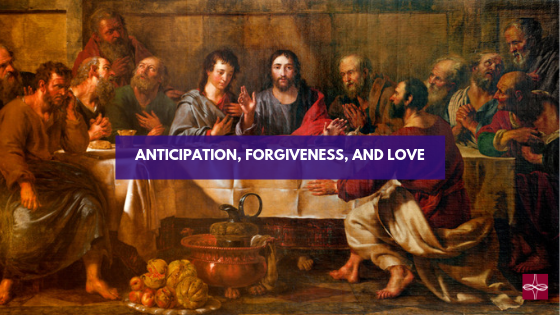

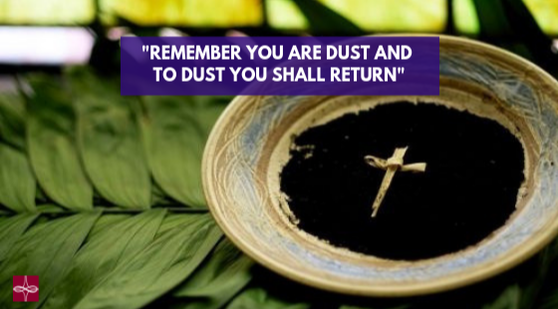

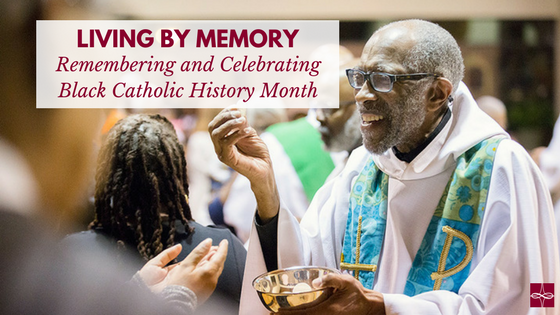

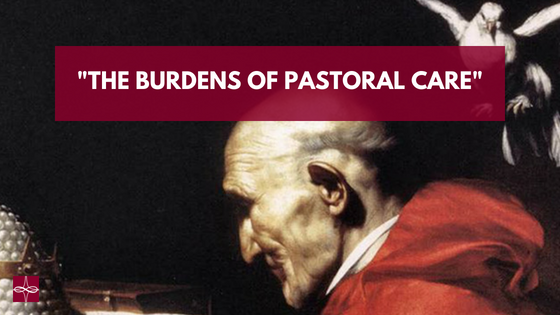

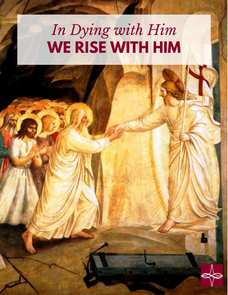

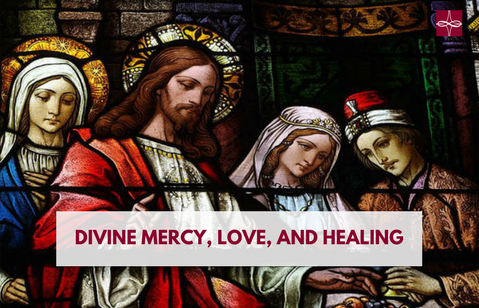

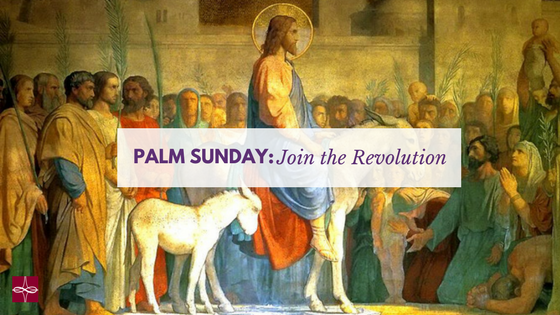

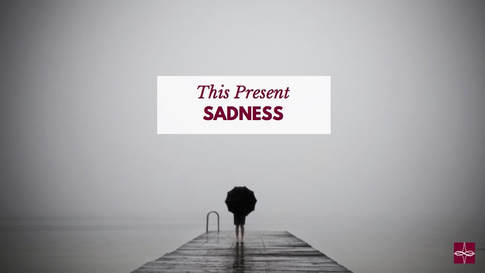

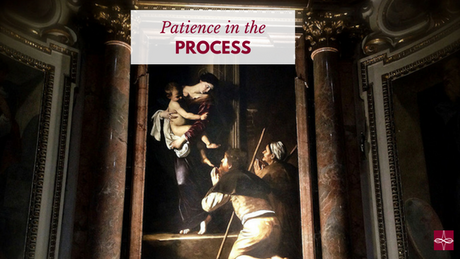

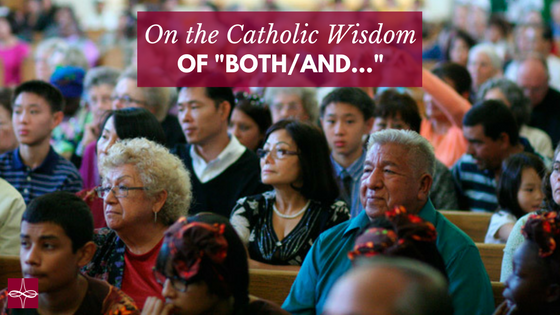

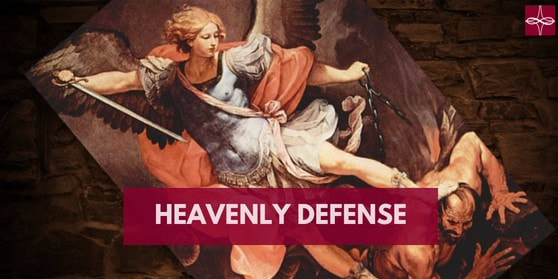

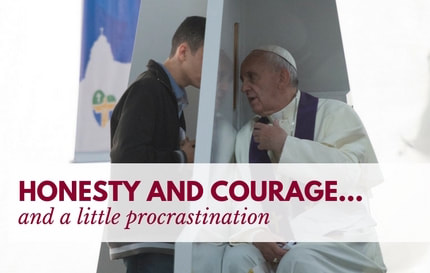

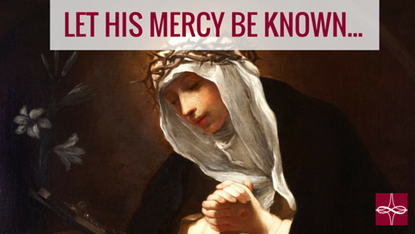

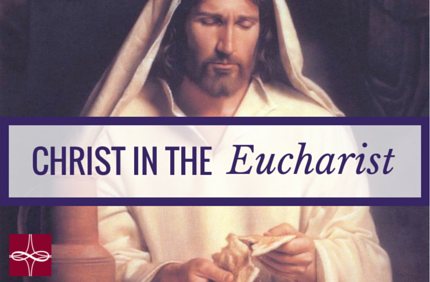

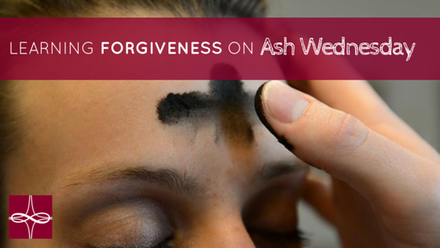

 RSS Feed
RSS Feed